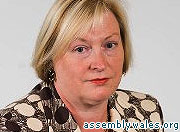The Welsh Assembly has announced that primary schools in Wales will not be forced to teach sex and relationship education (SRE) if they don’t want to.
But the Welsh Assembly Government is set to inject yet more funding into its controversial sexual health programme.
Last year the Welsh Assembly held a public consultation on SRE for primary schools, raising concerns that they were intending to make the subject compulsory for children as young as five.
Public
But after much public opposition ministers are now reaffirming that SRE is not compulsory for primary schools, in a new action plan published this month.
The action plan also verifies that SRE policies should take account of parent’s wishes.
And it states that schools are able to teach SRE in accordance with their ethos.
Parents
The Action Plan states: “Governing bodies should consult with parents / carers and the wider community to ensure that the policy takes account of parental wishes and meets the needs of the community the school serves.”
It continues: “Primary schools can provide a broader SRE programme but whether they do so is at the discretion of the school.”
The plan asserts that “it is important that school-based sex and relationships programmes are relevant and sensitive to learners’ needs and reflect the character and ethos of the school”.
Failing
In a bid to combat high teenage pregnancy rates, an extra £450,000 will be ploughed into teenage pregnancy hotspots in Wales.
Despite over £300 million already being squandered by the Westminster Government on a similar strategy, ministers in Cardiff plan to pour more funding into making advice and contraception widely accessible for young people.
Experimentation
The new Action Plan says ministers want to encourage a culture where people talk openly about sex and relationships, in an attempt to cut teenage pregnancy rates and sexually transmitted infections.
But critics warn that increasing SRE and handing out contraception will only serve to give the green light to young people to experiment sexually.

